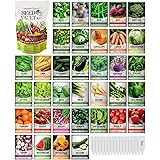WORKPRO 3Pcs 2x2x1ft Galvanized Raised Garden Bed Set, Rust & Corrosion Protection, Easy Assembly, Safe Edge, Ideal for Vegetables & Flowers, Black
$59.99 (as of 14:28 GMT -05:00 - More infoProduct prices and availability are accurate as of the date/time indicated and are subject to change. Any price and availability information displayed on [relevant Amazon Site(s), as applicable] at the time of purchase will apply to the purchase of this product.)Mostmahes 2 Pack Galvanized Raised Garden Bed Outdoor, Metal Garden Bed for Vegetables, Above Ground Garden Box for Flower, Steel Raised Beds for Gardening - 50"x20"
$49.99 (as of 14:06 GMT -05:00 - More infoProduct prices and availability are accurate as of the date/time indicated and are subject to change. Any price and availability information displayed on [relevant Amazon Site(s), as applicable] at the time of purchase will apply to the purchase of this product.)Composting is a natural process that involves the decomposition of organic matter into nutrient-rich soil. It’s an eco-friendly way to dispose of food waste and yard trimmings while also creating a valuable resource for your garden. In this blog post, we will explore the benefits of composting for both your garden and the environment.
What Is Composting and How Does it Work?
Composting is the process of breaking down organic material such as leaves, grass clippings, vegetable scraps, and fruit peels into smaller pieces by microorganisms like bacteria and fungi. These tiny creatures feed on the carbon in the organic matter and release nitrogen back into the soil, which helps plants grow. The result of this process is a dark, crumbly substance called humus, which is packed with essential nutrients for plant growth.
The Benefits of Composting for Your Garden
1. Improves Soil Health: Compost adds important nutrients to the soil, including nitrogen, potassium, phosphorus, and micronutrients. This can help improve soil health and increase plant productivity.
2. Reduces Water Usage: Compost can help retain moisture in the soil, reducing the need for watering. This is especially beneficial during dry spells or drought conditions.
3. Prevents Plant Diseases: Compost contains beneficial microbes that can protect plants from diseases and pests.
4. Boosts Fertility: Compost provides a wide range of nutrients that can boost fertility and promote healthy plant growth.
Why Composting is Good for the Environment
1. Reduces Waste: Composting is an effective way to reduce the amount of organic waste sent to landfills. According to the EPA, food waste accounts for 20% of all municipal solid waste, making it one of the largest components of landfills. By composting, you can divert these materials from the landfill and turn them into a useful resource.
2. Promotes Sustainability: Composting promotes sustainability by providing a renewable source of nutrients for your garden. Instead of relying on synthetic fertilizers, you can use compost to nourish your plants and support sustainable gardening practices.
Getting Started With Composting at Home
To get started with composting at home, you will need a bin or pile where you can store your organic waste. You can purchase a premade composter or build your own using wooden pallets or other materials. Once you have your bin set up, start adding your organic waste, including food scraps, yard trimmings, and shredded paper. Be sure to mix in brown materials (such as dried leaves) and green materials (such as fresh grass clippings) to create a balanced mixture. Turn the pile regularly to aerate it and speed up the decomposition process.
Tips For Successful Composting
Here are some tips for successful composting:
1. Choose the right location: Select a spot for your compost pile that is easily accessible but not too close to your house. Avoid placing it under trees or near a fence line to prevent attracting rodents or pests.
2. Mix it up: To ensure proper airflow and balance, mix in equal parts of browns and greens, along with some water to keep things moist.
3. Keep it turned: Turning your compost pile regularly helps to aerate it and encourage the breakdown of organic matter.
4. Monitor moisture levels: Make sure your compost pile stays moist but not overly wet. If it becomes too soggy, add more brown materials to absorb excess moisture.
5. Use a variety of ingredients: Adding a diverse array of organic materials to your compost pile can help introduce different types of microorganisms that can aid in the decomposition process.
Frequently Asked Questions About Composting
1. What kind of containers can I use for composting? There are many options available for composting containers, including plastic tumblers, wire baskets, and wooden boxes. Some people even use old garbage cans or metal drums. Just make sure the container has good ventilation and is easy to access.
2. Can I put meat or dairy products in my compost pile? No, meat and dairy products should be avoided in your compost pile because they can attract animals and cause odors. Stick to plant-based materials instead.
3. How long does it take for compost to form? The time it takes for compost to form depends on several factors, including the size of your pile, the type of materials used, and the temperature. On average, it can take anywhere from six months to two years for compost to fully mature. However, you can use partially decomposed materials earlier if needed.












































